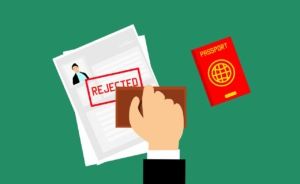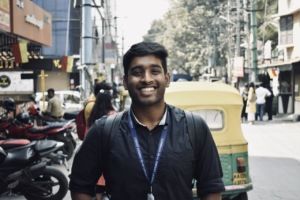Opinion
Guest Opinion • Where do we draw the line?
Maneesh Venkatesh
This article is more than 4 years old.

Family detected, but still rejected (photo: Pixabay)
During a deadly pandemic, amid limited employment opportunities and a crumbling market, is it necessary to separate families?
Warmth of the people
I first came to Denmark in 2018 to visit my family on a college break. Walking the cold streets lined with coloured houses, I fell in love with the city. I was enchanted by everything: the experimental gastro foods, the ‘hygge’ in the winter and the warmth I felt even in the freezing cold because of all the people. In the three years that followed, I came to Denmark every autumn and summer break.
As college came to an end, like most graduates I was faced with the impending prospect of my ‘future’. However, not even in my wildest dreams did I think there would be a pandemic, throwing even my cursory plans out of the window.
Surprise rejection
After a strict India lockdown, I reunited with my family in Denmark; however, there was a caveat. With my passport, I could only stay for 90 days, even though both my parents and my sister had been residents of Denmark for the past four years.
We thought it would be fine because I’d get an internship and be able to stay with them through a work/internship visa. So I reached Denmark, found an internship and applied for a visa allowing me to stay with my immediate family.
However, in February, I heard back that my application was rejected, leaving me with only six days to leave the country and deal with all my plans changing again.
Corona smokescreen
This threw me because I had for sure thought I was going to be able to stay with my parents. I had six days to pack all my things and find another place to live.
I was a non-working, barely graduated student with no income, although I was still in a better position than the millions of immigrants who come into the EU and are harshly turned away.
I was rejected under the pretext of COVID-19 laws. However, I had already been in the country for the previous six months while my application was being processed. If the intention was to prevent the spread, would it not make more sense to stay where I was?
World’s most hostile
While I understand what these laws are trying to enforce at some level, I think they are lacking a human aspect. It’s hard to understand how having both parents and my sister as residents did not qualify me for family reunification or even a work visa.
Even after all this, I can write this article and have a comfortable place to stay because of my privilege. My situation pales in comparison to others who do not have the back-up options I had, and I can’t imagine what they must be going through.
Denmark was ranked the happiest country in 2011 and 2012, and since then it has maintained a spot in the top five. However, where is that happiness and joy for the people who want to move this country? World’s most hostile country would a more apt description.
Sometimes, I think immigration laws forget to look at individuals as people and get caught up in an ‘us’ vs ‘them’ mindset. Don’t you?

About
Maneesh Venkatesh
Maneesh, 22, loves writing and painting in his quest to instill his work with the lessons he’s learned. Rarely quiet about his opinions, he has a passion for international relations. Get in touch on Instagram via @maneesh.venkatesh.










































